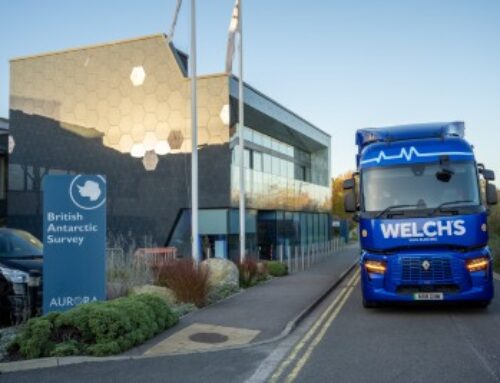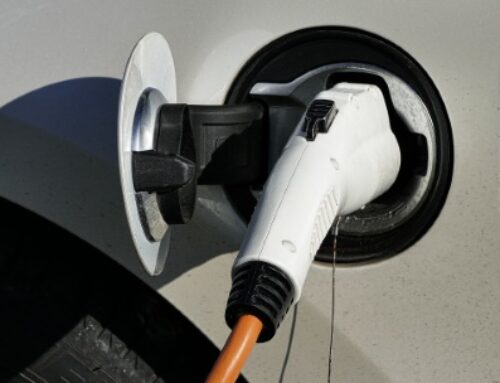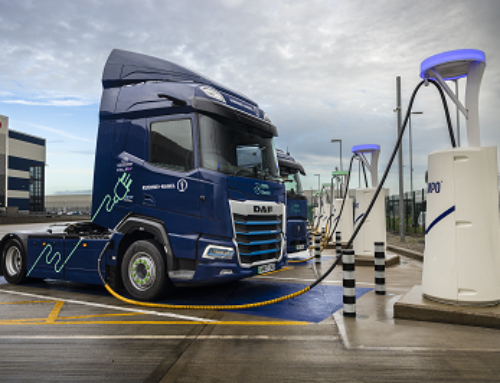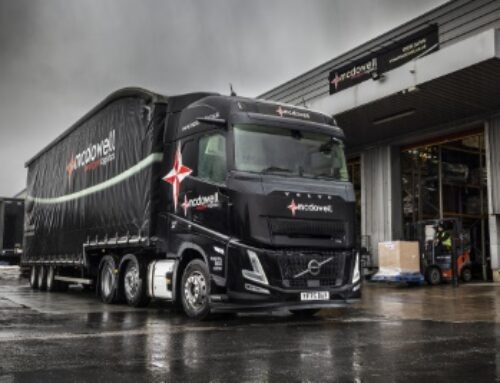DAF boss outlines thinking on decarbonisation
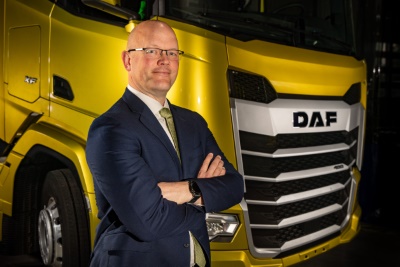 Laurence Drake, managing director of DAF Trucks Ltd, has explained how the UK market leading truck manufacturer will manage the introduction of electric vehicles alongside further developments in its diesel range.
Laurence Drake, managing director of DAF Trucks Ltd, has explained how the UK market leading truck manufacturer will manage the introduction of electric vehicles alongside further developments in its diesel range.
Speaking to journalists at an annual conference, Mr Drake said the next ten years could see arguably the biggest shift in goods transport since the development of the internal combustion engine.
“A hundred years ago, the move from horse and steam power to petrol and diesel alternatives progressed relatively smoothly as their enhanced productivity and efficiency encouraged a change that would in turn see a refuelling network and support network adapt and develop,” he said.
“The shift to zero emission alternatives is more challenging as, whilst we are becoming ever more aware of the massive cost of not shifting, we have yet to find a way to attribute environmental costs to the movement of goods.
“But what we can’t afford to do is ignore the cost – to do so will affect nothing less important than our way of life, our livelihoods, the lives of our children and, ultimately, all life on earth.
“We are not going to try to predict which technology will win out. Or when the cost of operating electric trucks will be less than diesel. Or when exactly an operator should make the switch. There are way too many variables over which we at DAF have no influence or even knowledge of at this stage. We don’t know future diesel prices. Or electricity prices. We don’t know how the Treasury will react to a loss in fuel duty from diesel. We don’t know if or when zero emission zones will spring up in UK cities. We don’t know exactly what incentives might be deployed to encourage EV uptake.
“Without this knowledge we can only guess how progressive a transition might be. With careful attention to incentives and favourable energy prices we could see a gradual increase in EV uptake, but without, we could see the 2035 and 2040 end-of-sale dates for non-zero emission vehicles being a cliff edge. And incidentally, this is one reason why we would like to see renewable energy given more prominence in UK Government’s thinking.
“Not only are alternatives like HVO making a vast reduction to net CO2 emissions from road transport when compared to fossil diesel, they are also less carbon intense than electricity which today, of course, is primarily generated from fossil fuels.
“First and foremost a progressive, predictable shift is vital to help ensure the investment in products, infrastructure and of course to start making environmental savings as soon as possible.
“We need a clear government strategy which transcends political parties overseen by a team that has a far-sighted view to delivering ultimate sustainability in the transport of goods.
“That means one that is not weighed by the influence of vested interests, is open minded about technologies and technology solutions, and is able to back up and support innovation with projects and incentives to enable them to be tested and validated.
“We do need clear objectives – and whilst the end-of-sale date for non-zero emission vehicles is certainly that, to be truly environmentally beneficial such goals need also to be aligned with similar hard targets to deliver renewable generation, life-cycle carbon measurement, and all without creating other unintended impacts on sustainability. And, of course, we must continue to challenge ourselves to reduce the overall need for transport; local sourcing, reduction in packaging, improving fill rates and wasted mileage all need to be tackled.
“We must, at all costs, avoid the cliff edges of 2035 and 2040, and to do this, we must have incentives that are progressive and enable operators to investigate and evaluate electric vehicles and how their businesses need to change for the future – operators will need time to switch as electrification is not just about replacing vehicles, it is about planning and investing in charging infrastructure. Buildings and premises will need to change, operations will be forced to change – and sometimes change dramatically.
“Today, it is obvious that electric trucks cannot compete directly with diesel and with electricity prices likely to stay high for some time, there needs to be more to balance the cost for operators to make the early shift.
“We also need a near-term strategy that can help decarbonise existing vehicles by ensuring renewable fuels are used where possible and in the most appropriate applications. HVO makes sense in HGVs not only because it can deliver a 90 per cent well-to-wheel carbon reduction but also because it is a drop-in alternative to diesel.
“And, of course, which ever power source is adopted in the longer term we need to ensure its source is sustainable and carbon saving – from HVO as the drop-in substitute to diesel, to the use of low carbon renewable electricity and green hydrogen made when there is surplus renewable electricity generation.”
Looking back on recent history, Laurence Drake noted that from 2015 to 2018 the British truck market was normalised at between 42,000 to 44,000 new trucks of over six tonnes registered each year. In 2019, this grew due to Brexit and companies being unclear about possible future import tariffs.
This may have affected the 2020 market, forecast at 41,000 trucks, due to the pull forward of orders, the DAF Trucks managing director postulated.
“But then Covid struck, and the actual market was 33,000 in total.
“So, 8,000 trucks not replaced and, in 2021 with 37,000 trucks, perhaps 6,000 down. So, as we entered 2022, we believed a big replacement cycle was needed as there was a shortfall of 14,000 trucks.
“However, supply constraints and of course the war in Ukraine have limited the market in 2022 and will continue to do so until 2024.
“It is expected that by 2023 manufacturers will be able to supply vehicles to a normal market level of circa 43,000 but would be unable to increase supply to alleviate the pent-up demand.
“Of course, the economic situation may temper that demand in any case.
“In 2024 with that demand in place and the need to sell more environmentally friendly vehicles due to VECTO, and the push to alternative fuels and electric, there will be a need for manufacturers to sell more.
“This may mean that the under supply and over demand will likely start to equate,” he suggested.









